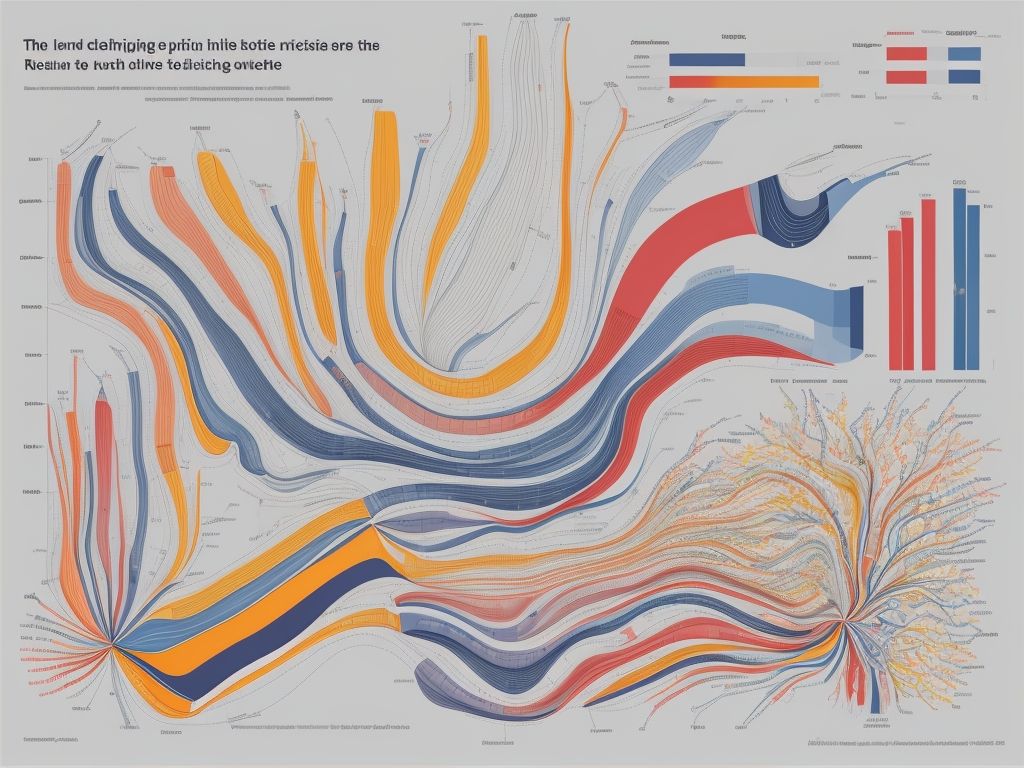Monmouth University Polls: Accurate Predictors of New Jersey’s Political Climate
Monmouth University Polls as a Tool for Political Analysis
Monmouth University Polls have become a vital tool for political analysts seeking to understand the dynamics of the ever-changing political landscape in New Jersey. With a reputation for methodological rigor and accuracy, these polls provide invaluable insights into voter preferences, opinions, and trends that shape electoral outcomes. By surveying a diverse cross-section of the state’s population, Monmouth University Polls offer a comprehensive snapshot of public sentiment, serving as a barometer for gauging the pulse of New Jersey politics.
The wide-ranging topics covered in Monmouth University Polls, from candidate approval ratings to policy preferences, allow policymakers, candidates, and the public to make informed decisions based on data-driven analysis. The accessibility of the poll results to the general public fosters transparency and accountability in the political process, empowering citizens to stay informed and engaged. As a trusted source of information, Monmouth University Polls play a pivotal role in shaping discussions, driving debates, and influencing strategic decisions for both political campaigns and governance in New Jersey.
The Methodology Behind Monmouth University Polls
Monmouth University Polls employ a rigorous methodology to ensure the accuracy and reliability of their data. The process typically begins with defining the target population for the poll, followed by selecting a representative sample through random sampling techniques. This helps in minimizing bias and ensuring that the poll results are reflective of the broader population.
Once the sample is selected, Monmouth University Polls use well-crafted questionnaires designed by experienced researchers to gather data on various political issues. The polling process often involves conducting surveys via phone calls, online platforms, or in-person interviews to reach a diverse range of respondents. Additionally, data analysis techniques are employed to interpret the results and draw meaningful insights that can inform political analysis and decision-making.
The Accuracy of Monmouth University Polls in Predicting Election Outcomes
Monmouth University polls have gained a reputation for their accuracy in predicting election outcomes. Through rigorous methodology and sampling techniques, these polls have consistently provided reliable insights into the political landscape. Given the university’s commitment to using diverse survey methods and ensuring representative samples, their poll results often align closely with the eventual election results.
The track record of Monmouth University polls in predicting election outcomes speaks to the credibility and trustworthiness of their data. By utilizing robust statistical analysis and continuous refinement of their methodologies, these polls offer valuable insights for political analysts and observers. The accuracy of Monmouth University polls in forecasting election results has solidified their position as a key player in the realm of political polling.
Trends in New Jersey’s Political Climate According to Monmouth University Polls
In recent years, Monmouth University Polls have provided valuable insights into the shifting political landscape of New Jersey. The polls conducted by the university have shown a noticeable trend towards increasing voter dissatisfaction with the current state of affairs. This dissatisfaction has led to a greater willingness among voters to consider alternative candidates and political parties in upcoming elections.
Furthermore, Monmouth University Polls have detected a significant divide in public opinion on key policy issues facing the state. These polls have highlighted the deep polarization within New Jersey’s electorate, with voters holding starkly contrasting views on topics such as healthcare, education, and the economy. This polarization has implications for political campaigns and policy discussions, as candidates and lawmakers grapple with finding common ground amidst such divergent perspectives.
The Impact of Monmouth University Polls on Political Campaign Strategies
Political campaign strategies are heavily influenced by the results of Monmouth University polls. Candidates often rely on the data gathered by these polls to tailor their messaging and target demographics effectively. By analyzing the public’s opinions and preferences as reflected in the polls, political campaigns can adjust their tactics to align with popular sentiment and maximize their chances of success in elections.
Moreover, Monmouth University polls play a crucial role in helping political campaigns identify key issues that resonate with voters. By highlighting the most pressing concerns of the electorate, these polls guide candidates in crafting their platforms and communication strategies. Candidates who pay close attention to the insights provided by Monmouth University polls are better equipped to address the needs and priorities of the voters, ultimately strengthening their appeal and competitiveness in political races.
Comparing Monmouth University Polls with Other Polling Organizations
Monmouth University Polls have consistently stood out among other polling organizations for their methodological rigor and accuracy in capturing public opinion. The emphasis on random sampling, proper weighting techniques, and transparency in their data collection process has established Monmouth University as a reputable source of polling data in the political arena. This attention to detail and commitment to sound methodology sets Monmouth University Polls apart from many other polling organizations, providing policymakers, candidates, and the public with reliable and insightful information.
In contrast, some other polling organizations have faced criticism for their sampling methods, potential biases, and lack of transparency in how they conduct their polls. This has led to questions about the credibility and reliability of their data, raising concerns about the accuracy of their predictions and the impact they have on the political landscape. By upholding high standards of professionalism and integrity, Monmouth University Polls have been able to maintain a reputation for providing trustworthy and valuable insights that are instrumental in understanding public sentiment and shaping informed decision-making processes.
How Monmouth University Polls Influence Public Perception of Political Candidates
Monmouth University Polls play a pivotal role in shaping the public perception of political candidates. By providing data on voter preferences and opinions, these polls have the power to influence how candidates are perceived by the public. The results of these polls can impact the narrative surrounding a candidate, either bolstering their image or highlighting areas of weakness that may sway voter sentiment.
Moreover, the frequent release of poll results by Monmouth University can create a sense of momentum or stagnation for political candidates. Positive poll numbers can generate enthusiasm among voters and attract more support, while declining numbers may lead to questions about a candidate’s viability. The influence of these polls on public perception highlights the significance of effectively communicating one’s message and appealing to the electorate in order to garner support and secure victory on election day.
The Role of Monmouth University Polls in Shaping Policy Debates in New Jersey
Monmouth University polls play a pivotal role in shaping policy debates in New Jersey. By providing insights into public opinion on various political issues, these polls offer valuable data that policymakers and stakeholders use to gauge the popular sentiment on specific policy proposals. The information gathered from these polls can influence the direction of policy debates by highlighting areas of consensus or contention among the electorate, ultimately guiding decision-makers in crafting policies that align with public preferences.
Moreover, the timely release of Monmouth University poll results can spark public discourse on important policy matters, serving as a catalyst for informed discussions among citizens and policymakers alike. The transparency and credibility of these polls lend weight to the debates, helping to inform the public about pressing issues and fostering a more engaged electorate. As such, Monmouth University polls not only shape the policy agenda in New Jersey but also contribute to a more informed and participatory political landscape in the state.
Challenges Faced by Monmouth University Polls in Gathering Accurate Data
One common challenge faced by Monmouth University Polls in gathering accurate data is sample bias. Despite efforts to randomly select participants, certain demographics may be overrepresented or underrepresented in the survey sample, leading to skewed results. This can occur due to factors such as low response rates from specific groups or inaccuracies in voter registration data.
Additionally, the timing of polling can present difficulties in obtaining accurate data for Monmouth University Polls. Political landscapes are constantly evolving, with events occurring that can sway public opinion rapidly. Conducting surveys too far in advance may fail to capture these shifts, while waiting too long risks missing out on crucial insights that could impact the accuracy of the results.
Future Implications of Monmouth University Polls on New Jersey’s Political Landscape
Monmouth University Polls have become an integral part of analyzing the political landscape in New Jersey. Their influence on shaping public opinion and guiding policy debates is undeniable. As we look to the future, the implications of Monmouth University Polls on New Jersey’s political landscape are poised to become even more significant.
With the evolving dynamics of New Jersey’s political climate, Monmouth University Polls will likely play a crucial role in predicting election outcomes and identifying key trends. As political campaigns continue to strategize and adjust their approaches based on polling data, the impact of Monmouth University Polls on the state’s political landscape is expected to continue shaping the narrative and influencing decision-making processes.
- University of Massachusetts Amherst Polls: Analyzing Voter Behavior in Massachusetts - January 5, 2025
- Polling Insights from University of Massachusetts Lowell: A Close Look at Voter Shifts - January 5, 2025
- University of New Hampshire Polls: Analyzing Key Presidential Primary Data - January 5, 2025







